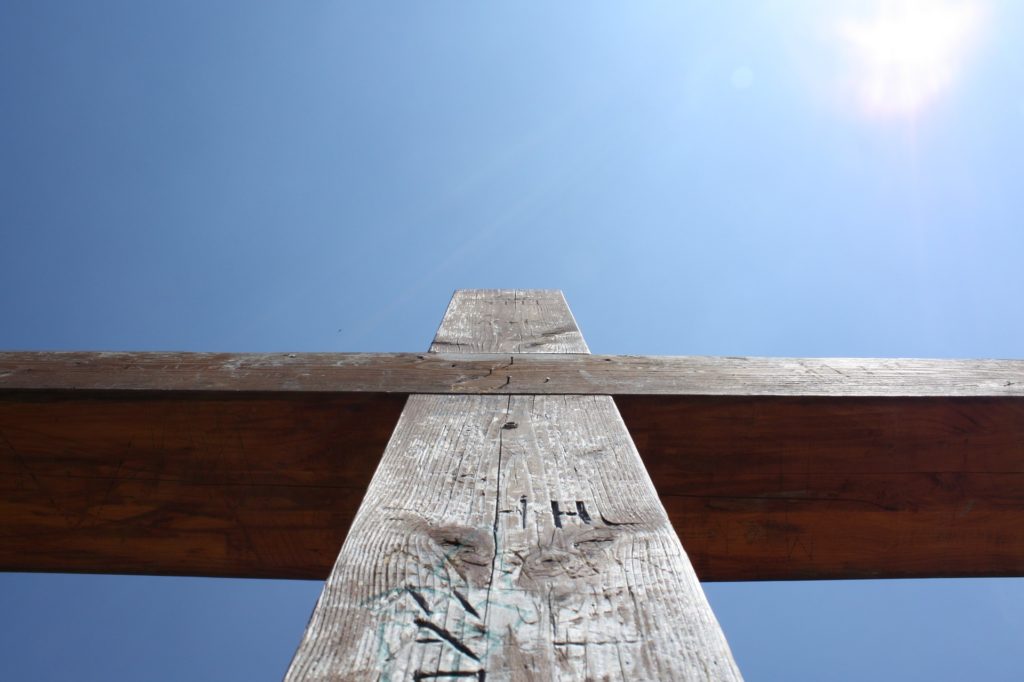
When I Survey the Wondrous Cross (Luke 23:32-49)
“When I survey the wondrous cross On which the Prince of glory died, My richest gain I count but loss And pour contempt on all my pride.”
The cross stands as the greatest symbol in Christianity. Jesus bore our sins in his body on the cross (l Pet. 2:24). Jesus’ blood was given for the remission of our sins (Matt. 26:28). “Christ also suffered once for sins” (1 Pet. 3:18).
This morning we need to examine the “wondrous cross” on which the Lord died.
The cross is a:
Cross of Shame, vv 32-38
We often picture the cross as being a wonderful experience, but the cross was far from such.
Jesus was crucified with criminals.
Isaiah prophesied that Jesus would be crucified with criminals—”He was numbered with the transgressors” (Is. 53:12). Jesus was led with two criminals, as though he himself were a common criminal, to be crucified. Jesus was crucified between two thieves.
The cross was the Roman method of capital punishment. The Roman government was putting these two thieves to death for their crimes—The day Jesus died was probably a day set aside for executions. The Lord Jesus was crucified by capital punishment as though he were a thief.
Jesus asked God to forgive those who crucified him. Even those who crucified Jesus could be forgiven of their sins. On Pentecost, Peter offered pardon to those who crucified Jesus (Acts 2:36-38).
The soldiers divided his garments by casting lots. Criminals were crucified naked, and soldiers would take whatever clothes they wanted. The soldiers who crucified Jesus took what they wanted of his clothes, but his coat was valuable. The coat was valuable, for it was seamless. The soldiers cast lots to see who would take the coat (Jn. 19:23-24). Our Lord was stripped of his clothing, and his clothing was divided among his executioners.
The leaders made fun of Jesus. The rulers said that if Jesus were really the Christ, he’d save himself, i.e., he’d get off the cross. The soldiers also mocked Jesus. They offered him sour wine. They, too, told Jesus to save himself if he really were the Christ.
This isn’t a pleasant picture. This is a picture of shame and humiliation. Our sins we e so horrible, that Jesus had to go through this for us.
Cross of Salvation, vv 39-43
One of the criminals also sneered Jesus. He said, “Jesus, if you really are the Christ, save yourself and us.” This man wasn’t looking for salvation; he didn’t want to die.
The other criminal rebuked him. This criminal said the other should fear God since they were all going to die. This criminal said that they deserved to die, but Jesus had done nothing wrong.
The criminal asked Jesus to remember him when Jesus came into his kingdom.
Jesus promised the criminal that he would be with him in Paradise. Jesus promised this man that that very day they would be together in Paradise, not some time in the distant future. “Paradise” is a Persian word for “beautiful garden.” The idea here is glory, bliss. Jesus promised this criminal salvation.
Just as this criminal found salvation in the cross, we, too, find salvation there. Christ died for our sins (1 Cor. 15:3). Christ freed us from our sins through his blood (Rev. 1:5).
Cross of Surprise, vv 44-49
The death of Jesus was like the death of no other person.
Natural phenomena around Jesus’ death were different. Darkness was over all the earth.
The veil of the temple was torn in two. The veil which was torn was the veil between the Holy of Holies and the Holy Place. The Holy of Holies was the most sacred place which was entered by the High priest just once a year. When the curtain was torn, this shows that man does not need a priest to enter God’s presence. After all, all Christians are priests (1 Pet. 2:9).
When Jesus died, he committed his spirit into the Father’s hands.
When the centurion saw this, he said, “Certainly this was a righteous man.” The centurion knew that Jesus had done nothing wrong. The centurion knew there was something different about Jesus. The centurion stood in awe of Jesus’ death.
Just as the centurion stood in awe and wonder of Jesus’ death, we need to do the same. We should be amazed that God loved us so much. We should be amazed that Jesus did die for our sins.
Conclusion
The cross does stand as an amazing feat. God became flesh and died for his creatures.
“Were the whole realm of nature mine, That were a present far too small; Love so amazing, so divine, Demands my soul, my life, my all.” Because of his love for you, Jesus does deserve your all. Are you willing to give Jesus your all?
This sermon was originally preached by Dr. Justin Imel, Sr., at the Alum Creek church of Christ in Alum Creek, West Virginia.





